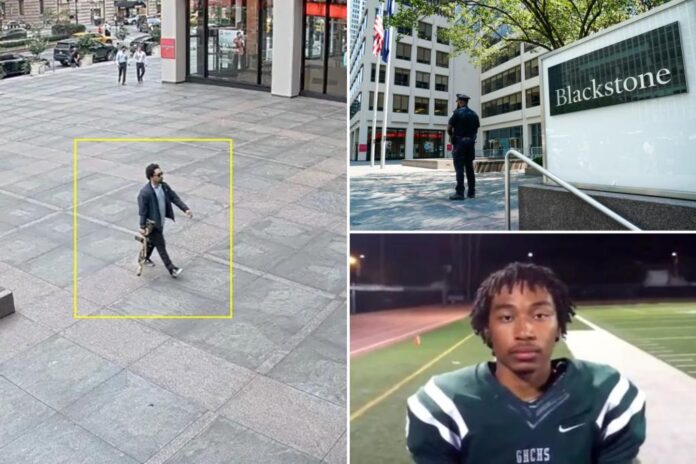The Tragic Case of Shane Tamura: A Deep Dive into Mental Health and Violence
In a harrowing incident that left New York City reeling, Shane Tamura, a 27-year-old from Las Vegas, shot and killed four people at a Midtown Manhattan office building on July 29, 2025, before turning the gun on himself. The chaotic scene unfolded in the heart of a bustling city during the evening rush hour, exposing the grim intersection of mental health struggles and gun violence.
Background and Mental Health Struggles
Recent reports reveal that Tamura’s troubles began long before the tragic shooting. He had a documented history of mental illness, often characterized by severe depression, chronic migraines, insomnia, and erratic behavior that prompted multiple hospitalizations. His mother had repeatedly expressed concern for her son’s mental health, even calling 911 on him in September 2022 to warn authorities that he was threatening self-harm and had access to a firearm.
“I don’t want you to be upset, but I’m afraid to leave,” she explained during the urgent call. Her fears were substantiated when Tamura’s mental health continued to decline, leading to his commitment to a hospital in 2024 after similar alarming behavior.
The Concussion and Allegations of CTE
Adding another layer to this disturbing narrative is Tamura’s claim that he suffered from Chronic Traumatic Encephalopathy (CTE), a degenerative brain disease linked to repeated head trauma often seen in contact sports like football. While he never played professionally, Tamura claimed in an apparent suicide note found in his wallet that he experienced brain injuries related to high school football and accused the NFL of concealing the dangers associated with head injuries.
This delusion highlights a worrying trend in which individuals misattribute or externalize their suffering. It raises critical questions about CTE risk awareness and mental health resources available to young athletes.
The Day of the Shooting
On the evening of the shooting, Tamura arrived at the 345 Park Avenue building, home to several prominent companies, including NFL offices. Sporting an M4 rifle, he moved methodically through the building. Surveillance footage captured him exiting a black BMW with the rifle and entering the lobby.
Within moments, he shot NYPD officer Didarul Islam, who bravely confronted him. He then continued his rampage, killing a woman who sought shelter behind a pillar and shooting a security guard. Other victims included Blackstone executive Wesley LePatner and Rudin Management associate Julia Hyman. Although one man survived with severe injuries, the scene was chaos, culminating in Tamura’s own suicide on the 33rd floor.
The Aftermath and Reflection
Following the incident, the immediate concern shifted to understanding the motivations that drove Tamura to commit such violence. His mother’s desperate pleas for help and the troubling accounts of his deteriorating mental health reveal a systemic gap in mental health resources and intervention protocols.
Moreover, the pressure and stress associated with high-performance environments, even in youth sports, necessitate careful consideration of mental health issues and adequate support systems. Tamura’s situation underscores the need for a societal shift in how we address mental health, particularly for young individuals facing immense pressure.
Community Responses
In the wake of the tragedy, community leaders and mental health advocates have begun advocating for better mental health resources and gun control measures. Mental health professionals are calling for more accessible treatment options and robust support systems to help those struggling with severe mental health issues.
The conversation around sports-related brain injuries is also gaining momentum, especially in light of Tamura’s claims regarding CTE. Advocacy groups aim to ensure that athletes and their families receive transparent information about potential risks associated with contact sports, promoting safer practices and better care.
By highlighting these critical issues, the tragedy of Shane Tamura serves as a heartbreaking reminder of the urgent need for comprehensive mental health care and informed discussions surrounding mental well-being and violence.
